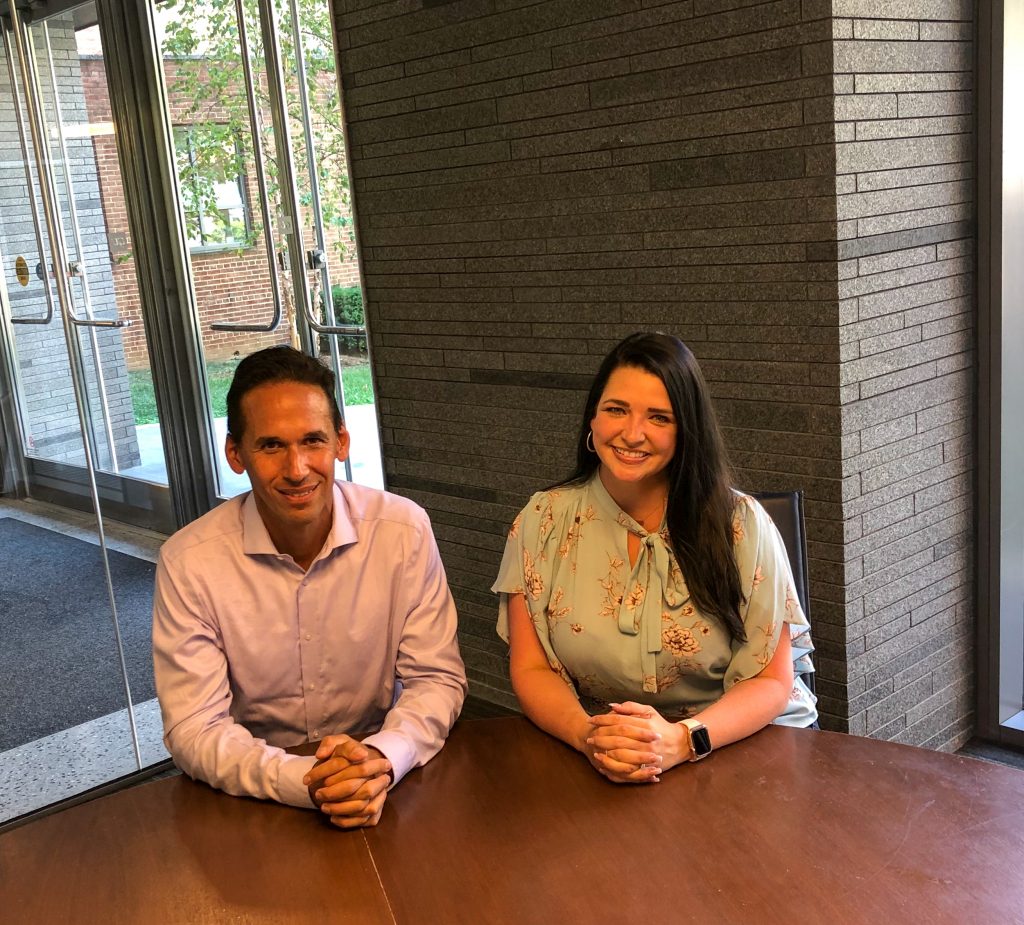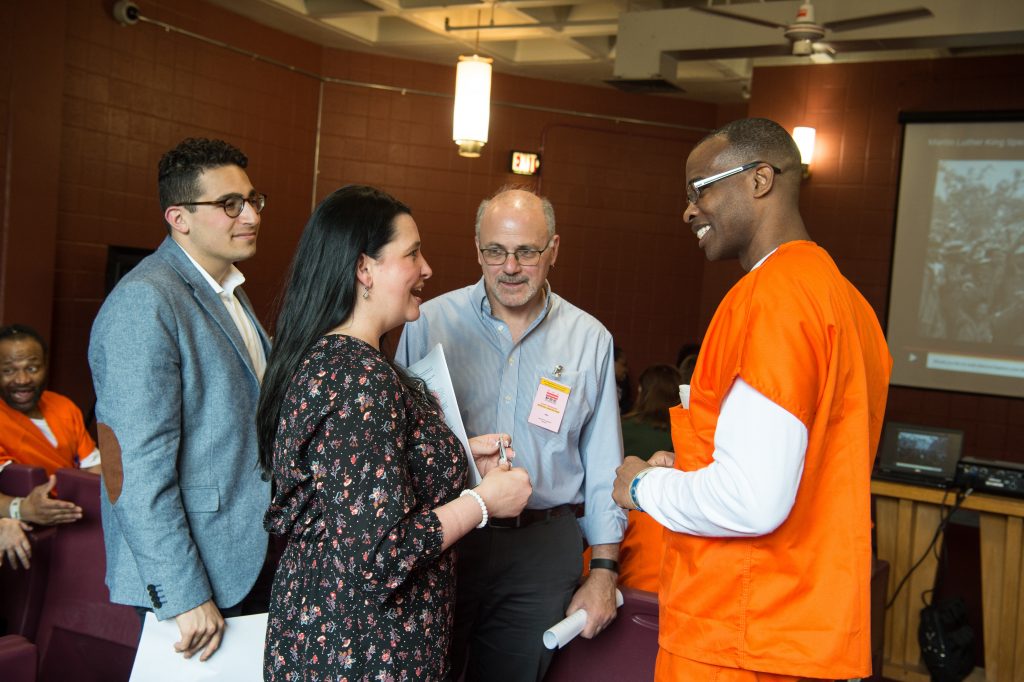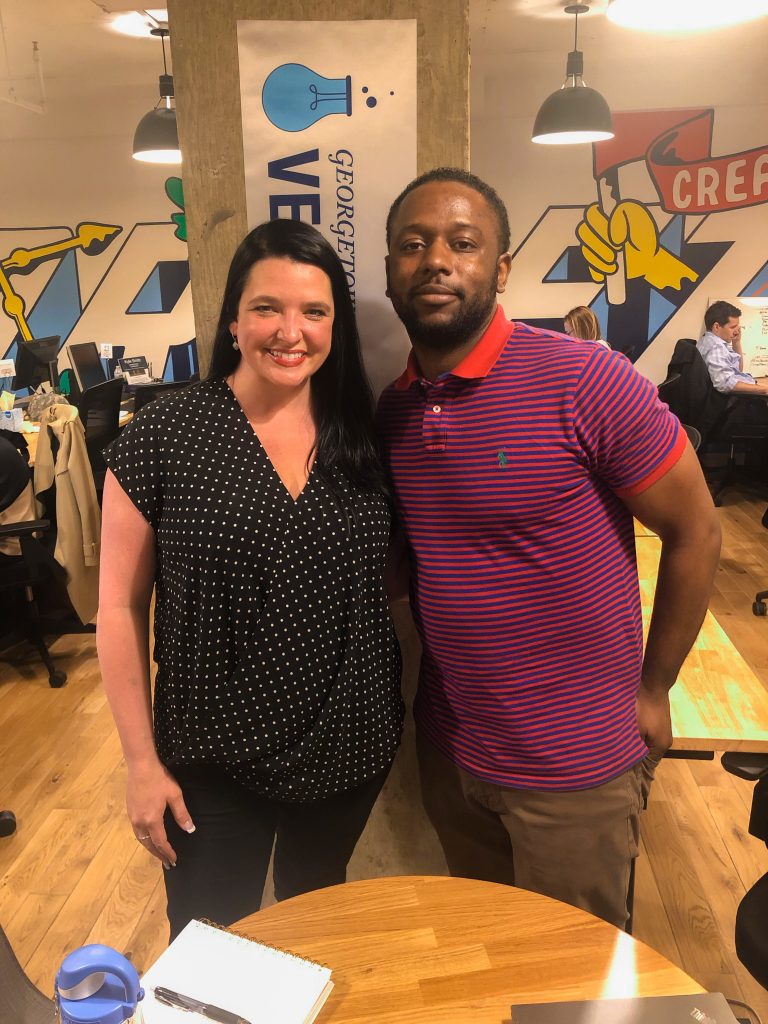Disclosure: This post is Sponsored by Salesforce.org
I went to Georgetown University to look at how the university is reimagining the future of education and leveraging Salesforce.org Education Cloud to do so. This is one of my stories of transformational impact.
Equality in Education

During a recent visit to Georgetown University , I had the opportunity to learn how the school is dedicated to creating the next generation of changemakers. These are the people that will go out into our world and truly make a difference.
Campus is very different than the image I had created in my head. There are a plethora of programs and organizations for all people, all backgrounds, all religions, and all cultures. There’s truly something for everyone. However, what I really gravitated towards was Georgetown’s dedication to underserved communities. Their dedication to promoting equity in learning both on and off campus. Their offerings are not just for the student ranked #1 in their senior class who came from a perfect background.
You can’t learn, you can’t change, you can’t grow without knowledge. Without people who believe in you. Georgetown is providing that. They are providing opportunities to individuals who would have never had the chance otherwise.
Opportunity is scarce for those from underserved communities and equity is all about making sure everyone has what they need to access opportunities. It’s easy to change your profile photo on social media and hide behind words of how change should happen. But what are you really doing to make it happen?
I was thrilled to see that Georgetown is promoting equity in education on and off campus. They aren’t afraid to step outside of the norm to create changemakers. They are providing opportunities to those who deserve it. Those ready and willing to go out into this world, to do good and make changes.
They are working to change the narrative and stigma that surrounds those who are incarcerated: those who never had the chance, the guidance, or simply made a bad decision at a young age. Georgetown is offering individuals the opportunity to right their wrongs. They now have the opportunity to take what they’ve learned and to be an advocate for their own communities and neighborhoods.

Prison Scholars Program at the DC Jail
In 2016 Marc Howard,a Georgetown University professor, launched the Prisons and Justice Initiative. It is a nonpartisan organization that brings together leading scholars, practitioners, and students to examine the problem of mass incarceration from multiple perspectives. The last few years there’s been a great deal of media attention surrounding events in Ferguson, New York, and Baltimore, among other places. The spotlight has been heavily on policing, criminal justice, prisons, race, poverty, and human redemption.
Georgetown launched the Georgetown Prison Scholars Program last year at The DC Jail. This allows currently incarcerated men and women the opportunity to take credit and non credit bearing courses in English, Philosophy, Music, Debate, and Government. This program is working to change the narrative of being incarcerated. The way I see it is you can’t better yourself, you can’t break cycles, without opportunities.
I’d never been in a prison before my recent visit although I’ve been extremely interested in criminal justice for a good part of my life. I attended the MLK Teach the Speech event led by Dr. Brad R. Braxton at the DC Jail. Dr. Braxton is the Director at The Center for the Study of African American Religious Life at the Smithsonian National Museum of African American History and Culture. The lecture was focused on teaching Dr. King’s Revolutionary Rhetoric in Revolutionary Times.

When I spoke to a current resident, Joel, he shared that Georgetown really cares about them. “They are extremely supportive and even show up to hearings,” he said. Marc says, “Joel is the leader in every respect for the people around him. He’s a model citizen. When outside visitors come in, he engages. He’s intelligent and ambitious. He’s everything you’d want in a human being.”
It’s not just a teacher/student relationship. Behind these prison walls, relationships have been formed that could last a lifetime.
During the lecture, something Dr. Braxton said rang true to me “one of the most important things in life is that to get to know someone, you must get close”. That’s exactly what individuals like Marc Howard have done by dedicating their lives to this work.
“These prisons are full of real stories, real life, and also real inspiration”.
Marc Howard

Dr. Howard provides classes, counseling and some tools but is missing some key learning tools like technology. He goes on to say, “The paradox is that in the space where I focus much of my work–prisons and jails–technology is extremely limited. But part of my purpose is to transfer the voices, intelligence, and dedication of the incarcerated students in our Scholars program to people on the outside, and technology allows us to amplify and expand that message.
The Pivot Program is a non-credit bearing program in business and entrepreneurship for formerly incarcerated individuals. They are working to change the stories of returning citizens by assisting them with their re-entry into society. Classes offered are business fundamentals including psychology, theology, strategy, marketing, accounting and entrepreneurship. Here at the Venture Lab, where the Pivot Program is located, I had the opportunity to sit down with two recent students. Ralph, who says his favorite class is Philosophy, told me that everywhere he looks he now sees opportunity thanks to this program.

“We all want to be better but don’t have the opportunities. Some of us take the wrong route but don’t have the knowledge to help us succeed. The Pivot Program gives us that knowledge. I now understand that I don’t have to be the status quo.”
Ralph-Georgetown University Pivot Program Student
Students are not only provided classroom training but they also spend half of their time in internships. At the end of the academic year, Fellows choose what phase they follow next: incubation or employment. The ones that choose to create their own business are provided work space, coaching, legal support, along with other resources. Those who seek permanent employment are placed in internships with local employers. The Fellows receive a weekly stipend from the D.C. Department of Employment Services. This Georgetown University program sets these returning citizens up for success by providing them the tools they need to go out into this world and make a difference.
Equality in education is about opening doors that were once closed, removing barriers, and finding pathways that don’t always look traditional – these initiatives were eye-opening to me but I also learned how universities are transforming how they approach sharing knowledge and community development. Equality in education is also about making Georgetown better. The unique gifts and talents that the students have and can now use enrich the lives of those on campus just as much as the teachers enrich the lives of the students.
Joel can now be what he has seen – he has seen confidence, respect, and a future. And that makes all the difference.
